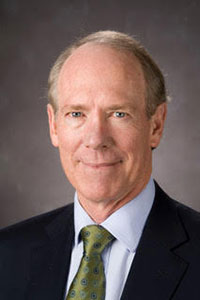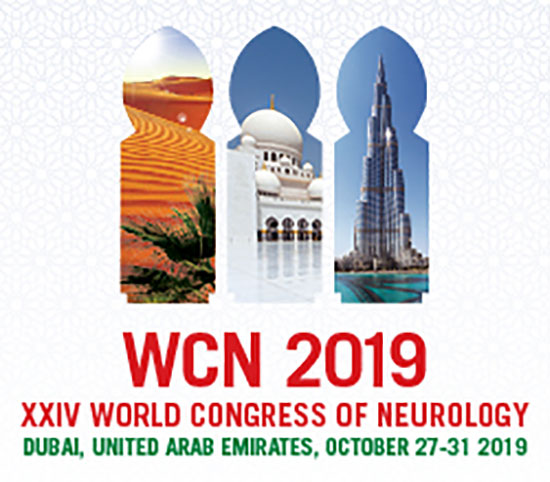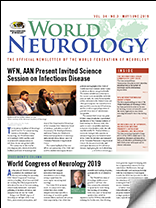As this issue of World Neurology is published, the excitement and tension surrounding the upcoming XXIV World Congress of Neurology (WCN) is building. All of those involved are readying their final preparations for what should be one of the most exciting, educationally informative, and varied gathering of speakers, attendees, and delegates from all over the world.

William Carroll, MD
Being a true World Congress of Neurology, it will have all the local flavor, international participation, and opportunity for collegial interaction that uniquely characterizes such meetings, setting it apart from the more regular annual regional meetings.
The Dubai WCN promises much. As a major travel hub, Dubai will reduce overall delegate travel time and offer a wide range of accessible quality accommodation and novel attractions. Most importantly, it has a first-class scientific and teaching program, guaranteed to be of interest to all.
The World Federation of Neurology (WFN) is most grateful to all those who have accepted the invitation to speak and to teach during this meeting. By accepting both roles, most of the invited speakers have aided the organizers and the WFN in substantially reducing the faculty costs, thus allowing more generous support in keeping with the recognition they deserve for their contribution. Furthermore, through reduced faculty costs and in partnership with the local Emirates Neurological Society, this WCN has been able to offer a record number of travel bursaries to assist the attendance of more than 200 young neurologists from low- and low-middle-income countries.
A further consequence of the modestly reduced faculty and the attempts of the program committees to engage more younger speakers (while also attaining topic, regional, and gender balance) is that some regular participants from past congresses may feel overlooked. To those who may feel this way, I would like to say that we have greatly appreciated their WCN contributions and in turn those to the WFN.

Other extraordinary highlights will include increasing the attractiveness of the Tournament of the Minds as described in my last column, the continuation of posters on poster boards rather than by e-format, the use of news conferences to disseminate important messages from the WCN, and upgraded social media. The decision to retain physical poster sessions is based on the observations at a number of other conferences of the relative sterility of e-poster sessions and the organic interactive environment seen at physical poster sessions. Delegate feedback here remains important.
There are three important press conferences planned. It is no coincidence that these will focus on the three largest contributors to the global disability adjusted life years. The first is the final activity for the successful 2019 World Brain Day – Migraine the Painful Truth. This press event will be co-hosted by the International Headache Society (IHS) and the WFN and will emphasize the impact that migraine has not only on the individual and on them as employees but also on their employers.
The second press conference will focus on the nexus between stroke and dementia, and the third on the recent alignment of the World Health Organization (WHO), WFN and the World Stroke Organization (WSO) through the change in categorization of stroke in ICD-11 from a circulatory disease to a brain disease and the implications of this.
Council of Delegates
The WCN also provides an important opportunity for groups to meet and discuss a wide range of issues related to neurology and neurology specialties. For the WFN, this is one of the most important times. The WFN Council of Delegates (COD), comprising representatives from most of the WFN national member organizations, meets Oct. 26 to conduct its business.
On this occasion, there are two trustee positions to be filled. These are the treasurer and an elected trustee. An important vote will also be held to determine the site of the 2023 WCN. More on these important matters will be discussed in the next issue of World Neurology.
A final, and arguably the most important meeting, will also occur during the WCN. This will be the Global Neurology Alliance (GNA). The alliance represents most of the topic specialties of neurology, such as the World Stroke Organization, Alzheimers International, the International League Against Epilepsy, the International Parkinson’s Disease and Movement Disorders Society, the Multiple Sclerosis International Federation, the International Headache Society, the International Federation of Clinical Neurophysiology, and the major associated organizations, such as the World Federation of Neurosurgical Societies, the World Federation of Neurorehabilitation, the International Brain Research Organization, the World Psychiatry Association, and the International Child Neurology Association.
Also included are the major regional neurology organizations, such as the American Academy of Neurology, the European Academy of Neurology, the African Academy of Neurology, the Pan American Federation of Neurological Societies, the Pan Arab Union of Neurological Societies, and the Asian and Oceanian Association of Neurology.
WFN Specialty groups, such as Amyotrophic Lateral Sclerosis and Motor Neurone Disease, Huntington’s Disease, Tropical and Infectious Neurology, Environmental Neurology, Migrant Neurology, Epidemiology, Functional Neurological Disorders, and others, are also included.
At present, the GNA does not include solely neuroscience or patient advocacy groups. The GNA represents what is arguably the most comprehensive advocacy group for all aspects of neurology. Topics likely to be considered are increasing the importance of brain health, the inequities of access to neurological care, and the burden of non-communicable neurological disease.
All up, the 2019 World Congress of Neurology promises to be a most memorable event. It is, as the Global Neurology Alliance illustrates, a celebration of all things neurological. I look forward to seeing you all in October. •
